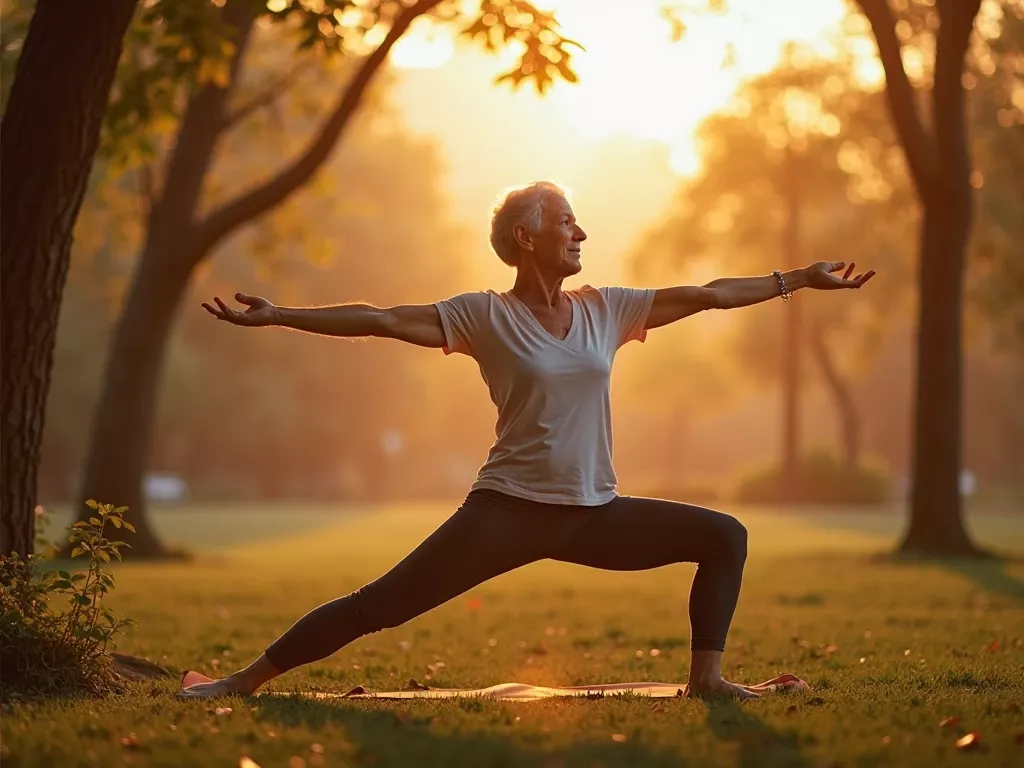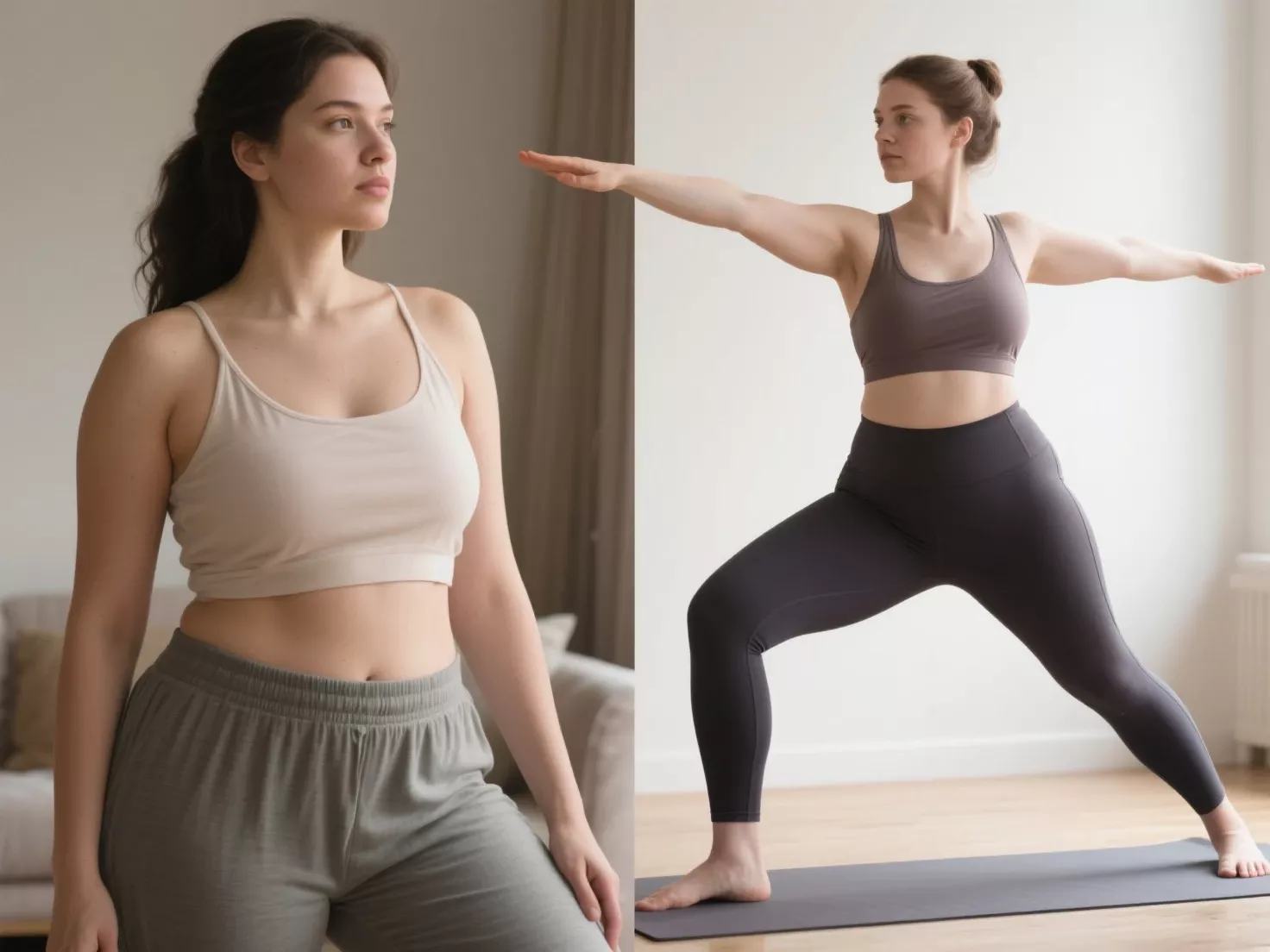As modern science advances and wellness trends evolve, the age-old question continues to surface: Can yoga actually help you live longer?
More than just a fitness routine, yoga is a deeply integrated practice of physical postures (asanas), breath control (pranayama), meditation, and mindfulness — all working together to harmonize the body and mind.
And yes, scientific research increasingly supports the idea that regular yoga practice can positively affect life expectancy.
While yoga may not grant immortality, it influences many of the biological, psychological, and lifestyle factors that are directly linked to increased longevity and improved quality of life.

In this detailed guide, we’ll examine how yoga may contribute to a longer life through physical health benefits, stress reduction, enhanced cellular health, and more.
🧬 1. Yoga and Cellular Aging: The Role of Telomeres
Telomeres are protective caps at the ends of our chromosomes. Over time, as cells divide and age, these telomeres shorten — a process associated with aging and degenerative diseases.
🧪 Scientific Insight:
A groundbreaking study led by Dr. Dean Ornish and Nobel laureate Dr. Elizabeth Blackburn showed that yoga and meditation-based lifestyle interventions can significantly increase telomerase activity, the enzyme that maintains telomere length.
Longer telomeres are linked to better cellular health, reduced risk of chronic disease, and greater life expectancy.
❤️ 2. Cardiovascular Benefits and Reduced Mortality Risk
Cardiovascular disease remains the leading cause of death worldwide. Yoga contributes to heart health in numerous ways:
-
Lowers blood pressure and resting heart rate
-
Reduces LDL cholesterol and increases HDL
-
Improves heart rate variability (a key indicator of stress resilience)
-
Enhances blood circulation and arterial function
A study published in the European Journal of Preventive Cardiology (2014) found that people who practiced yoga had similar improvements in heart health markers as those who engaged in aerobic exercises like walking or cycling.
These changes collectively lower the risk of heart attack, stroke, and premature death — major contributors to life expectancy.
🧠 3. Stress Reduction: Calming the Nervous System, Extending Life
Chronic stress accelerates aging by increasing cortisol, weakening the immune system, and damaging DNA.
Stress-related conditions like anxiety, depression, and insomnia are also linked to a higher risk of premature death.
Yoga’s Role in Stress Management:
-
Activates the parasympathetic nervous system (rest and digest)
-
Lowers cortisol and adrenaline levels
-
Improves mental clarity, emotional balance, and sleep
Through consistent yoga practice — especially with pranayama and meditation — practitioners experience lower baseline stress levels, which improves long-term health and protects against burnout and breakdown.
🦴 4. Physical Longevity: Strength, Flexibility, and Injury Prevention
Falls, fractures, and mobility limitations are common in older adults — and they significantly reduce life quality and expectancy. Yoga enhances:
-
Muscle strength and endurance, especially through poses like Warrior II or Plank
-
Balance and coordination, reducing fall risk
-
Joint flexibility, supporting pain-free movement
-
Bone density, especially in postmenopausal women (certain yoga poses are weight-bearing)
A Harvard Medical School article confirmed that yoga increases physical independence in aging populations, which is directly linked to longevity.
🛌 5. Improved Sleep — A Hidden Key to Longevity
Poor sleep is associated with weight gain, hypertension, mood disorders, and increased mortality.
Yoga, especially restorative practices and breathwork, improves sleep quality by:
-
Increasing melatonin production
-
Reducing sleep latency (time taken to fall asleep)
-
Enhancing deep sleep stages
Practitioners report better rest, improved recovery, and increased energy, all of which influence longevity on both cellular and systemic levels.
🍎 6. Encouraging Healthy Lifestyle Choices
People who regularly practice yoga are more likely to adopt and sustain healthy habits, including:
-
Mindful eating and healthier food choices
-
Lower alcohol and tobacco use
-
Increased physical activity
-
Higher adherence to medical or therapeutic recommendations
-
Stronger social connection and self-awareness
These lifestyle factors strongly correlate with lower all-cause mortality — meaning yoga doesn’t just help you live longer, but live better.
🌿 7. Yoga for Emotional Health and Cognitive Longevity
Emotional stress, loneliness, and cognitive decline can drastically affect life expectancy. Yoga helps in:
-
Reducing symptoms of depression and anxiety
-
Increasing GABA levels in the brain (a calming neurotransmitter)
-
Improving memory, focus, and cognitive resilience
-
Enhancing self-esteem and a sense of purpose
Long-term mental wellness has a profound influence on physical longevity — and yoga, as a mind-body practice, stands out in this domain.
📊 Summary Table: Yoga’s Contribution to Life Expectancy
| Health Domain | Yoga’s Benefit |
|---|---|
| Cellular Health | Increases telomerase activity, slows DNA damage |
| Cardiovascular Health | Lowers blood pressure, improves cholesterol, enhances heart function |
| Stress and Mental Health | Decreases cortisol, improves mood, builds resilience |
| Musculoskeletal Strength | Improves balance, flexibility, bone density, and posture |
| Sleep and Recovery | Promotes deep rest and recovery |
| Lifestyle Behaviors | Encourages healthy habits and reduces risky behaviors |
| Cognitive Function | Supports brain health, focus, and emotional balance |
🙋 Frequently Asked Questions (FAQs)
1. Is yoga alone enough to increase life expectancy?
Yoga is a powerful tool, but it works best in combination with a balanced lifestyle: proper nutrition, adequate sleep, regular physical activity, and strong social support.
2. How much yoga is needed to benefit health?
Even 15–30 minutes a day can provide meaningful health benefits. More intensive or longer sessions 3–5 times per week often show the greatest results.
3. What type of yoga is best for longevity?
Gentle styles like Hatha, Yin, and Restorative yoga support aging and recovery, while Vinyasa or Ashtanga build strength and cardiovascular endurance.
4. Is it ever too late to start yoga?
Absolutely not. Many studies focus on seniors and older adults who benefit enormously from starting yoga — even in their 60s, 70s, or 80s.
🌟 Final Thoughts: Yoga as a Lifelong Ally in Longevity
While no single activity can guarantee a longer life, yoga is a uniquely comprehensive practice — it nourishes the physical body, calms the nervous system, sharpens the mind, and encourages inner awareness.
Its long-term effects ripple through every system of the body and every aspect of daily life.
More than just adding years to your life, yoga helps you add life to your years.
It supports graceful aging, emotional balance, and a deeper connection to purpose — all of which are essential ingredients for a long, meaningful life.
“Yoga teaches us to cure what need not be endured and endure what cannot be cured.” – B.K.S. Iyengar



